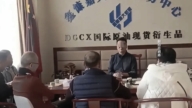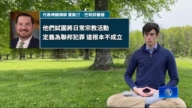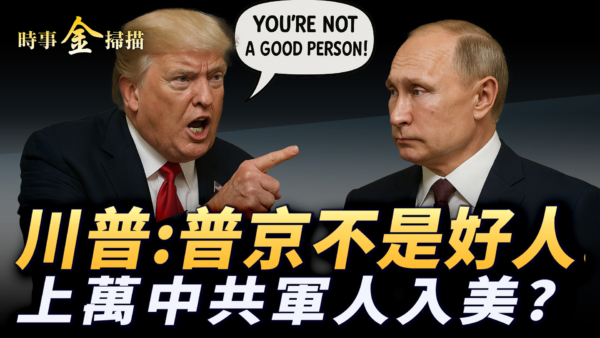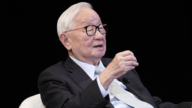【新唐人2013年07月22日讯】“北京大学”发布的一份最新社会调查显示,中国家庭贫富差距高达234倍,尽管这一数字令许多大陆民众感到震惊,但经济、社会学家认为,中国大陆真正的贫富差距远远高于这个调查结果,而且还在持续扩大,一旦突破民众的容忍底限,将有可能导致社会动乱。
北京大学“中国社会科学调查中心”7月17号发布《中国家庭追踪调查》报告显示,2012年,中国大陆的家庭人均纯收入均值为13033元,收入最低的5%的家庭人均收入只有1000元,而收入最高的5%家庭的人均收入则高达34300元,两者相差234倍。但有社会观察家表示,由于部分群体存在隐性福利和灰色收入,中国的家庭贫富分化程度实际可能更为严重。
中国金融智库研究员巩胜利:“我觉得它这个调查,它的数据采集可能有一些局限性,我想不要说3万了,30万可能都不止。或者它在某些范围内展开的(调查),中国差距不止这么多,这是肯定的。”
判断民众收入分配公平程度的指标,被学术界称为基尼系数,基尼系数越接近0,表示民众收入越平等,基尼系数越大,收入分配就越不平均。中国“西南财经大学”去年12月发布的统计报告显示﹕2010年中国大陆的基尼系数已突破0.6,达到了0.61,远超过国际上0.4的警戒线,世界罕见。
究竟什么原因造成了中国巨大的贫富差距呢?各专家学者的说法不一,有人将它概括为发展原因、体制原因和制度原因,三个方面。
中国经济学学者段绍译:“第一方面是,因为现在中国不是真正的市场经济,第二个原因是因为,中国的社会保障体系现在还很差。”
中国经济学学者,经济专栏作家段绍译指出,由于缺少有力的社会保障机制和救助机制,城市的贫困人口和底层群众,一旦遇到重病、灾害,会立即陷入绝境,很多时候,仅仅因为家里有一个重病人就导致全家濒临破产。
另一种观点则认为,由于“城乡二元制度”存在,使城乡贫富差距更为显着。
巩胜利:“第一是城镇人口与农村人口的差别,这种差别是从源头拉大的,比如说,农村人口,生下来以后就是赤裸裸的,不管就业、不管看病、不管上学,那么这些钱都要自己掏,这些钱从哪里来啊?”
虽然造成贫富差距的具体原因有很多,但多数人认为,中共的体制以及特权阶层的存在,导致社会资源配置不公,正是造成少数富,多数穷的主要原因。
段绍译:“有很多特权参与社会财富的分配,好比说,我们中国有很多的高干子弟、有政府背景的人,他们就容易 利用特权得到比较好的机会。”
大陆媒体披露中共特权阶层六大便利通道,一度引发强烈反响。其中包括公款吃喝等福利待遇的享受,特权房、特权医疗等资源的抢占,各种“特供产品”的供应,官二代、军二代的教育、就业、经商的优先权等。
“北大”的调查报告也显示,在所谓“体制内”工作的家庭成员,收入明显高于社会的平均水准。
然而,随着贫富差距的持续扩大、和特权阶层占有的社会资源逐渐增加,以及收入分配的不公,社会阶层的矛盾也随之加大。
段绍译:“如果是用特权变得更加富有,而因为没有这种特权而贫穷,老百姓的这个仇富心理,也会引起社会的不安定。”
巩胜利:“贫富差距大的国家不稳定,这样的社会岌岌可危。”
评论指出,中国巨大的贫富差异已经成为大陆最严重的民生问题,社会冲突随时有激化或爆发的可能。
采访/朱智善 编辑/张天宇 后制/萧宇
234 Fold Difference in China Rich and Poor Income Gap
The latest Chinese Family Panel Study by
Peking University indicated a 234 fold difference
in family income between the rich and the poor.
As surprising as this figure may sound, economic and
social experts suspect the actual gap is much wider.
The gap is not only continuing to get wider,
but is also challenging people’s tolerance.
Social unrest is likely to occur if this is left unresolved.
On July 17, the Social Science Institute of Peking University
released the results of the Chinese Family Panel Studies.
It indicated that the average annual income
for a family in 2012 was 13,000 Yuan.
The lowest 5% income was only 1,000 Yuan,
and the highest 5% income was 34,300 yuan.
There was a 234 fold difference.
Social observers suggest that the difference
might be more severe than this study has showed.
This is due to hidden benefits, as well as gray
income associated with certain interest groups.
Gong Shengli, finance analyst: “I believe
there’s certain limitations within the survey.
The richest could have earned more
than just a few tens of thousands.
The survey might be limited in this area.
It is certain that the gap between the rich and
the poor is far more than the data has showed.”
The Gini coefficient is an approximate measure
of the income inequality in a society.
A Gini coefficient of zero represents perfect equality.
The higher the coefficient,
the greater the disparity in wealth.
According to a survey by Southwestern University
of Finance and Economics last December,
China’s 2010 Gini coefficient has reached 0.61.
This far exceeds the international warning level of 0.4
What exactly has contributed to
this huge wealth gap in China?
Amongst various theories, experts
believe there are three causes.
These are developmental, systematic, and structural.
Duan Shaoyi, economist: “First, there
is no real market economy in China.
Secondly, China has a very poor social security system.”
Duan Shaoyi indicates that due to a lack of an effective
social security and social support, impoverished populations
will collapse with just one disease or natural disaster.
That means a family will go bankrupt
with just one unfortunate incident.
The current “urban-rural dual system" in Chinese
society also contributes to the wide income gap.
Gong Shengli: “There is a fundamental difference
between the urban and the rural populations.
Being in rural areas, people are born with nothing.
There are no jobs, health service, or education.
There is no social welfare. They need to come
up with the money themselves for everything.”
Among all the various reasons behind the huge gap,
it is believed that
the Communist system and the privileged groups are
another main reasons for social welfare injustice and
the disparity between the rich and poor.
Duan Shaoyi: “Privileged groups, such as offspring of
cadres and officials, have access to social wealth allocation.”
Take six convenient channels enjoyed by the
Communist privileged groups as an example.
According to Chinese media reports, interest groups not
only enjoy welfare in housing, medicine, and products.
They are also prioritized in education, job placements,
and businesses for the younger generations.
The recent survey report released by Peking University
also showed the significantly higher income for those
who are categorized as being in the Communist regime.
However, social class conflicts will increase with
the ever expanding gap between rich and the poor.
This will also be impounded by increasing advantages
of social resources allocation to the privileged groups.
Duan Shaoyi: “Social instability will continue to
grow as the poors hatred for the rich will increases.”
Gong Shengli: “A country with a wide wealth gap
is unstable, and the society is in great danger.”
The huge disparity has become the most severe problem
in China, and social conflicts could take place at any time.




























